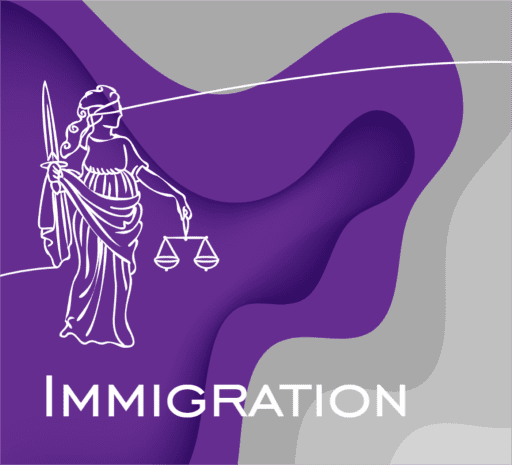Under UK immigration law, a child is considered a dependant when they are under the age of 18, neither unmarried nor in a civil partnership, are not leading an independent life and do not have a family of their own.
Can I Get A Visa for My Child?
In most cases, the Home Office grants child dependant visas on the condition that both parents reside within the United Kingdom. Should only one of the child’s parents live in the UK, evidence must be provided to confirm that the UK-based parent has sole responsibility for the child (or children).
If one of the child’s parents lives in the United Kingdom and the other overseas, though the UK-based parent cannot prove they are the sole guardian of the child, evidence must be provided as to why the exclusion/deportation of the child is against his or her best interests. Across the board, the applicant must be able to provide evidence of childcare arrangements.
Legal criteria regarding the maximum age of children who can be considered dependants differs for EEA and non-EEA applicants. EEA nationals may apply for child dependant visas for individuals as old as 21, whereas applications from non-EEA nationals are restricted to children under the age of 18.
The status of ‘dependant child’ does not apply in any instances where the individual concerned has formed their own independent family unit, is leading an independent life or is not financially dependent on their settled UK-based parent.
Where custody of a child is shared between two parents – one residing in the United Kingdom and one overseas – child dependant visa applications become more complex. In order to qualify, the UK-based parent must provide evidence that they were solely responsible for the upbringing of their child, without the help and support of the second overseas parent.
Due to the complications and sensitivities inherent with family visa issues, it’s important to speak to an experienced immigration lawyer to discuss the options available. There may be multiple avenues to explore, in accordance with the specifics of your case and your objectives.
Child dependant visa applications and United Kingdom fall into three primary categories are as follows:
- Dependent Children of a person present and settled in the UK
- Dependent Children of a person who has limited leave to remain in the UK
- Dependent children of an EEA national exercising EC Treaty Rights in the UK
Dependent Children of a Person Present and Settled in the UK
Where a child’s parent is a settled individual in the UK, an application can be submitted to legally allow the child to join their parent with indefinite leave to remain. For such a visa application to be accepted, several important conditions must be met including:
1. The UK-based parent must be a British citizen or a legally settled individual in the United Kingdom; or both parents are applying for settled status at the same time; or
- One of the parents must be a settled person in the UK and is currently resident in the UK; or
- One of the parents is a present and settled individual in the UK or is in the process of applying for settled status and the second parent is deceased; or
- One of the parents is a present and settled individual in the United Kingdom or is in the process of applying for settled status and the second parent was responsible for the child’s upbringing; or
- One of the parents is a present and settled individual in the United Kingdom or is in the process of applying for settled status and there are conditions that can be proven which make the deportation or exclusion of the child undesirable and sufficient childcare arrangements have been made.
2. The child has not yet reached 18 years of age, is neither married nor in a civil partnership, is not leading an independent life and does not have their own family.
3. The child can be appropriately accommodated and cared for financially with no requirement to rely on public funds (benefits/social welfare).
The sole responsibility principle is adhered to strictly by the Home Office in the UK. If an application for a child dependant visa is based entirely or partially on sole responsibility, any input or interference on the part of the second parent would contravene the principle and represent shared responsibility.
It is not uncommon for Entry Clearance Officers to view the sole responsibility principle as a binary ‘black or white’ issue. Hence, if there is any evidence whatsoever of shared responsibility for the child’s upbringing, it could have a significant impact on the child’s eligibility for a visa.
Contact the team at Aristone Solicitors today to discuss the specifics of your case in more detail.
Dependent Children of a Person who Has Limited Leave to Remain in the UK
Individuals who have been granted limited leave to remain in the United Kingdom may also apply for visas to enable their dependants to join them for the duration of their stay. This applies primarily to individuals with longer-term visas and cases are only considered where the dependent child in question is under the age of 18.
The visa granted to the dependent child will be limited in accordance with the duration of their parent’s leave to remain. If their parent’s visa allows for extension applications to be submitted, the same privilege will usually be open to the dependent child.
If a dependent child passes the upper age limit of 18 years while in the UK during their limited leave to remain, they are still classified as dependants and can apply to have their visa extended in accordance with their parent’s leave to remain. This clause remains valid for as long as the dependent child remains a part of their parent’s household.
All children granted access to the UK on a child dependant visas gain access to many of the rights and privileges of children born in the UK. Examples of which include free state healthcare and education. However, a child dependant visa excludes the respective child or children from claiming benefit payments or financial support sourced from public funds of any kind.
Dependent Children of an EEA National
For EEA nationals, dependant child visas can be issued for qualifying individuals up to the age of 21. Once again, official legislation states that the child dependant must not be married or have entered into a civil partnership, have started a family of their own, be living an independent life or be financially independent.
Under the terms of the EEA treaty, applications will be considered in accordance with the EEA national’s employment status and whether or not they are claiming benefits in the UK.
An EEA family permit can be applied for in instances where the child is not an EEA nation, which is typically valid for a period of six months. For the child to extend their leave to remain in the United Kingdom, they would need to subsequently obtain an EEA residence card.
After residing legally in the United Kingdom for a minimum of five consecutive years, the child will have the opportunity to apply for permanent residence. To qualify, the child must be with the parent sponsoring their application for the duration of their stay.
Child Dependant Visa Lawyers in Luton
Here at Aristone Solicitors, we understand the sensitivities that accompany immigration and legal issues involving children. We also acknowledge the importance of bringing every case a prompt and amicable resolution. Our commitment to bespoke legal services to suit all requirements and budgets enables us to maintain an unbeatable success rate with even the most challenging immigration applications.
Book your obligation-free initial consultation with one of our experts today to discuss the available options. Whether planning ahead or already in the midst of an immigration application, we’re standing by to offer our full support.



